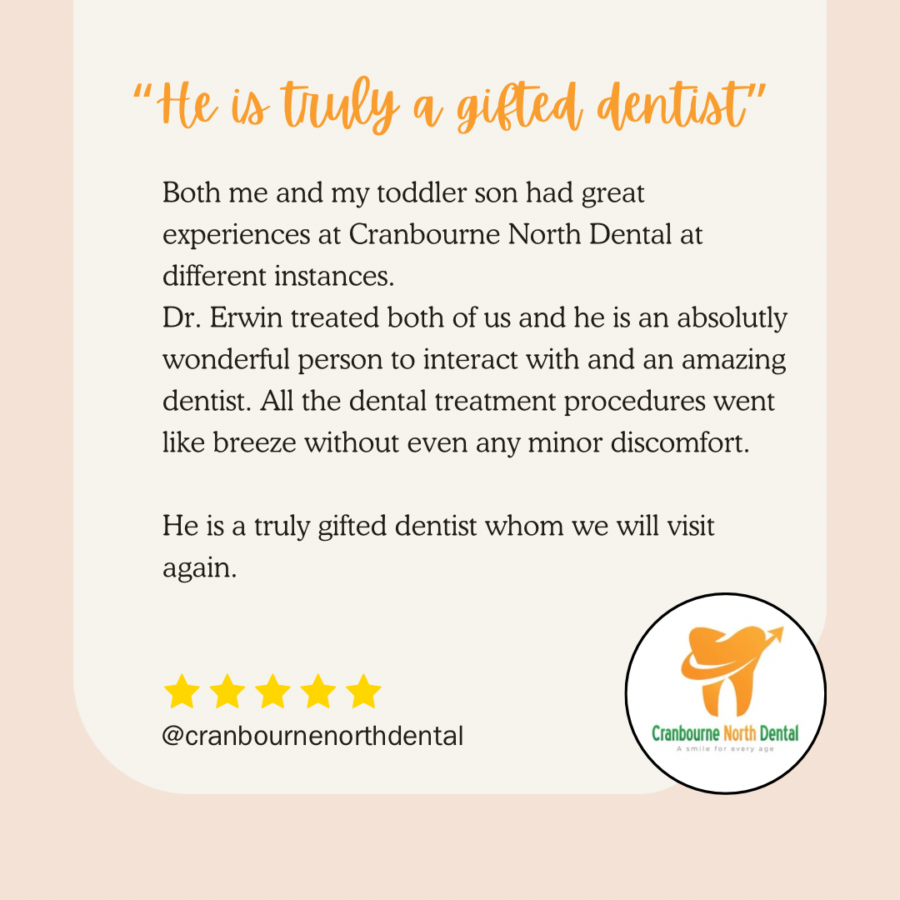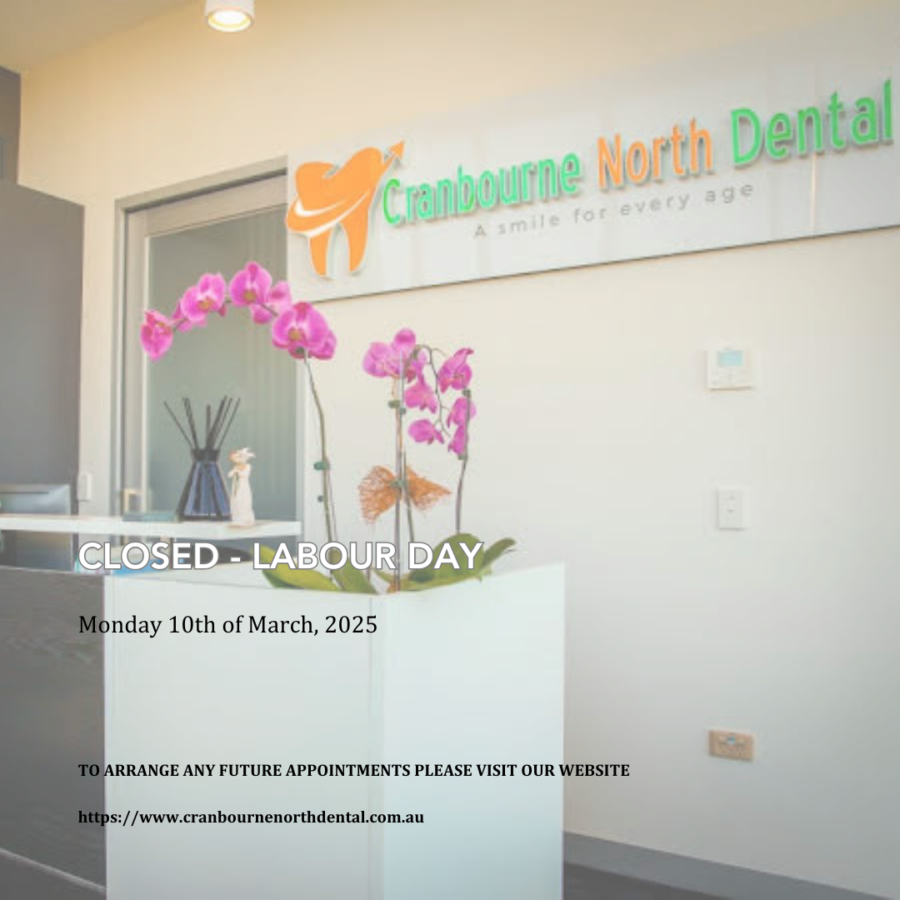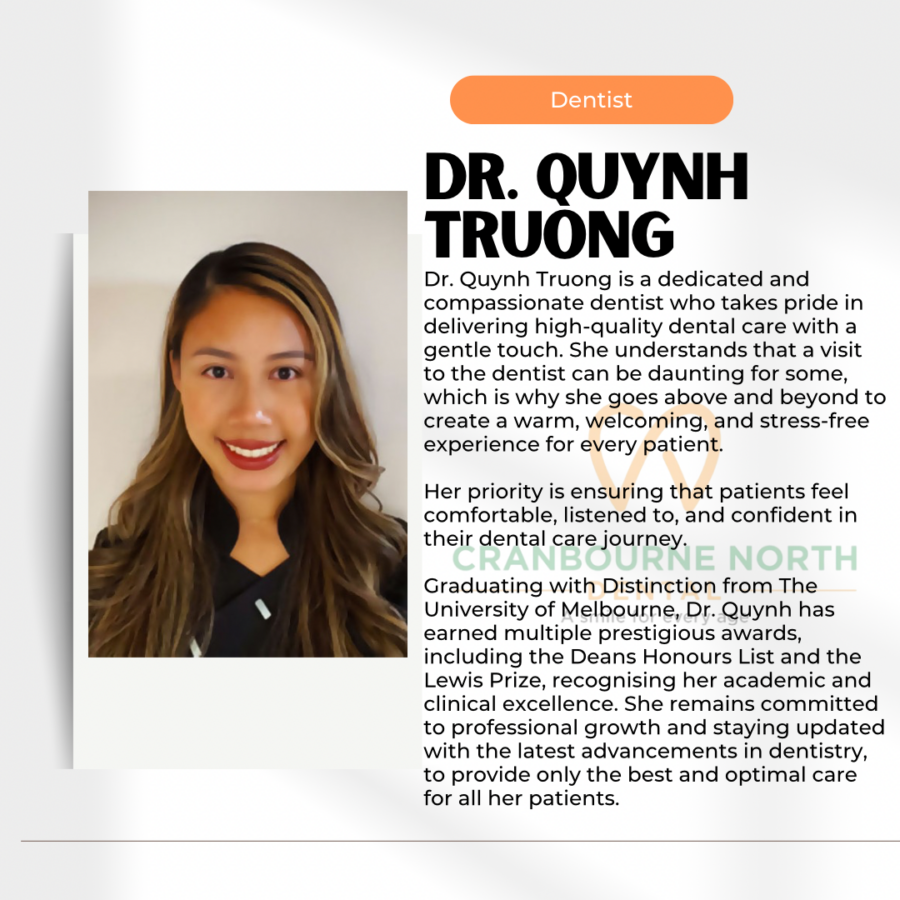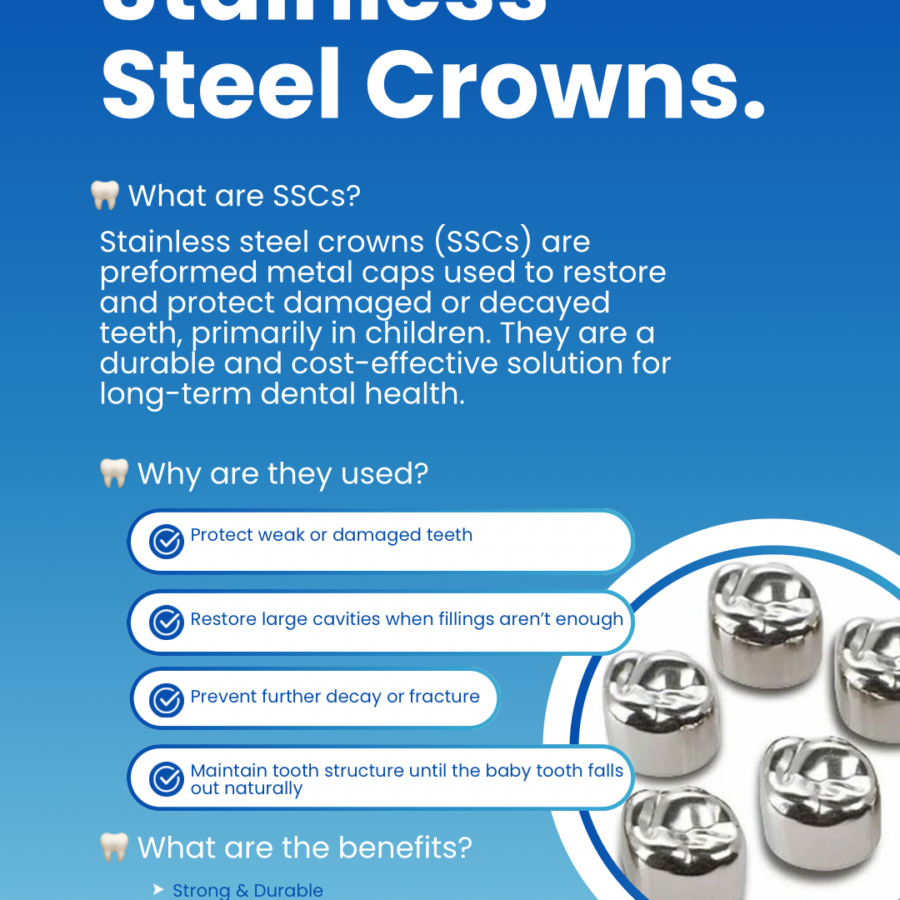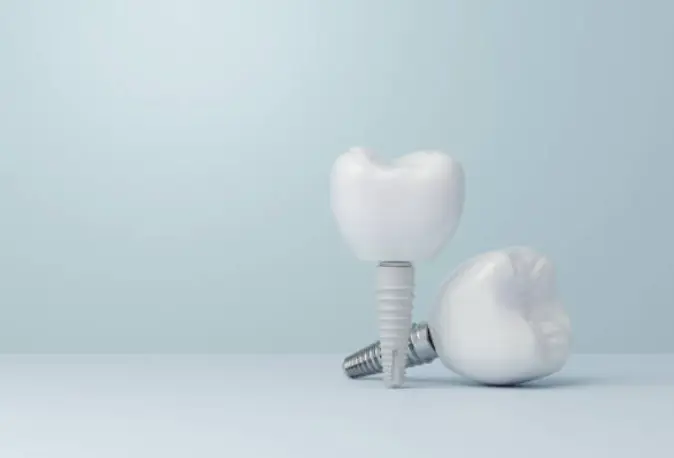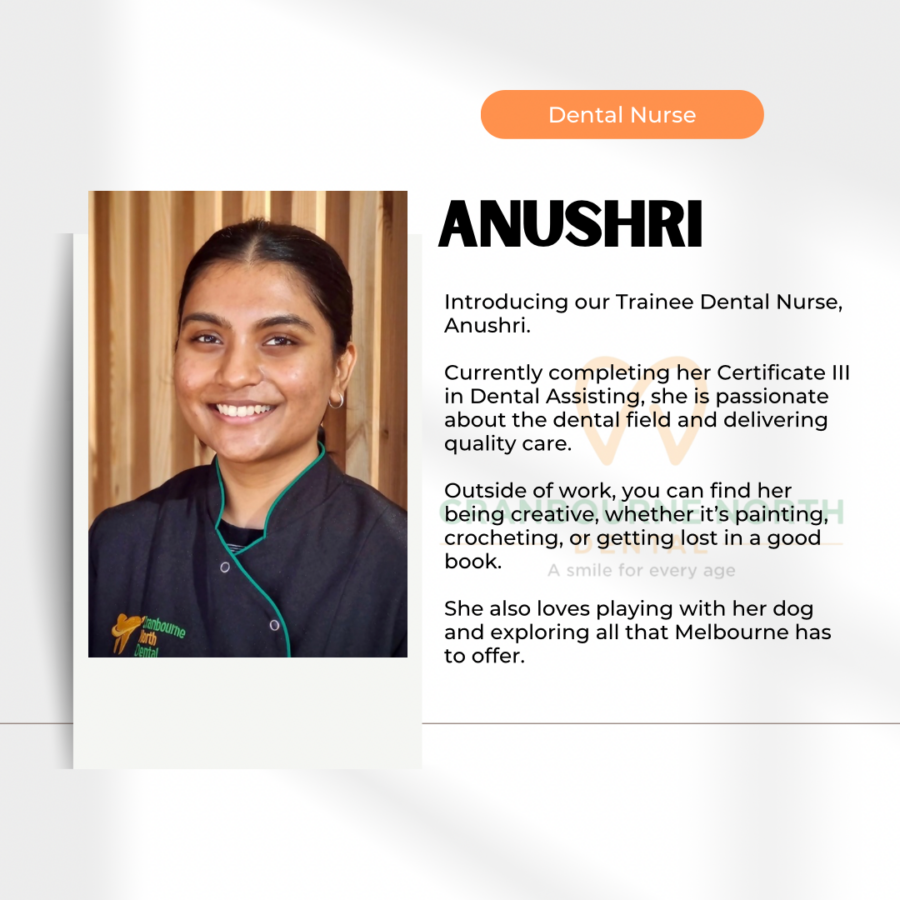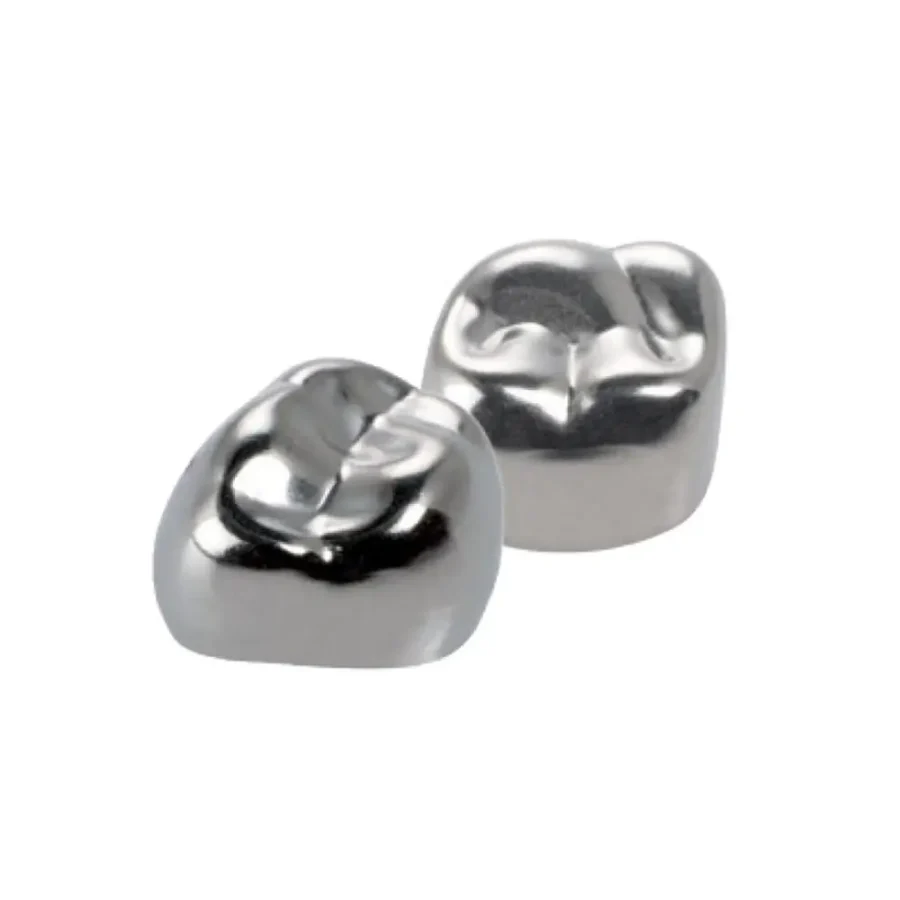What is Tooth Decay?
According to the World Health Organization (WHO), tooth decay, also known as dental caries, stands as the most prevalent noncommunicable disease globally. Whether referred to as tooth decay, a cavity, or the unsightly brown or black spot on your tooth, addressing it promptly is essential.
Tooth decay starts when specific bacteria in your mouth generate acids, causing damage to the tooth structure. Learn more below about preventing and treating this common dental issue for optimal oral health.
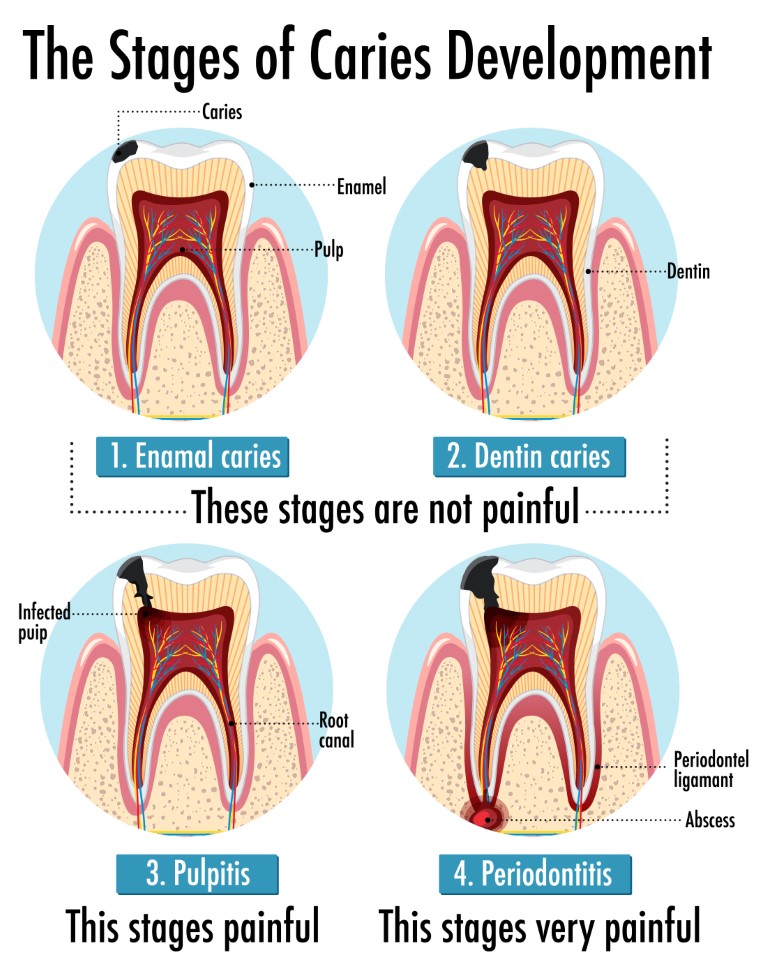
Causes
The causes of tooth decay involve a combination of factors that create an environment conducive to dental caries.
Here are the key contributors:
Poor Oral Hygiene
- Insufficient or ineffective brushing
- Neglecting flossing routines
- Inadequate brushing and flossing allow plaque, a sticky film of bacteria, to accumulate on teeth, leading to tooth decay
Diet High in Sugars, Carbohydrates and Acids
Sugar: Decay’s Ally
- Sugar is a primary contributor to tooth decay.
- Bacteria in the mouth metabolises sugar into acid, contributing to the damage of the tooth structure.
Acidic Foods and Drinks:
- Tooth Vulnerability
Consumption of acidic food and drinks weakens tooth enamel. - Weakened enamel increases susceptibility to decay.
Lack of Fluoride
Insufficient exposure to fluoride, either through water, toothpaste, or dental treatments, can weaken enamel and make teeth more susceptible to decay.
Other factors:
Dry Mouth
Reduced saliva flow, often caused by certain medications or medical conditions, contributes to an increased risk of tooth decay as saliva helps neutralise acids and remineralise the teeth.
Genetics
Genetic factors can sometimes influence risk factors that impact an individual’s susceptibility to tooth decay.
Lack of Dental Care
Infrequent dental check-ups and professional cleanings can result in undetected dental issues and the progression of decay.
Symptoms
Persistent Toothaches
Unexplained or recurring tooth pain is a common symptom of tooth decay, a prevalent dental concern.
Sensitivity to Hot or Cold
Increased tooth sensitivity, especially to hot or cold temperatures, could be indicative of tooth decay issues.
Pain While Chewing
Discomfort or pain while chewing, particularly on the affected side, could point to potential tooth decay issues.
Visible Holes
Detectable cavities, holes, or some pits on the tooth surface are clear signs of tooth decay, a condition that requires attention.
Discoloration
Discoloration, presenting as white, brown, or black spots on the tooth, may signify the presence of tooth decay, impacting overall oral health.
Bad Breath (Halitosis)
Persistent bad breath, not alleviated by regular oral care, may be linked to tooth decay problems.
General Mouth Discomfort
A general feeling of mouth discomfort, sometimes accompanied by a bad taste, might be associated with tooth decay concerns.
It is important to note that there are instances where a substantial area of tooth decay may exist without apparent signs or symptoms. This underscores the importance of early detection and swift dental intervention in effectively managing tooth decay and ensuring peak oral health.

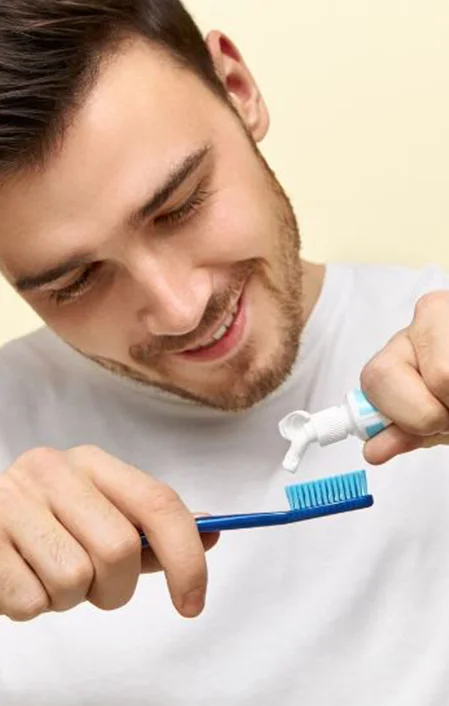
Prevention
Preventing tooth decay involves adopting a combination of effective oral hygiene practices and lifestyle choices.
Brush Regularly
- Brush your teeth at least twice a day for at least 2 minutes, using fluoride toothpaste.
- Ensure thorough and gentle brushing, covering all surfaces of your teeth.
Floss Daily
Floss between your teeth daily to remove plaque and debris that toothbrushes may miss.
Limit Sugary Foods and Drinks
Reduce the consumption of sugary and acidic foods and drinks, as they contribute to enamel erosion.
Healthy lifestyle
- Maintain a well-balanced diet rich in calcium and other essential nutrients for strong and healthy teeth.
- Avoid smoking and excessive alcohol consumption
Drink Water
Drink plenty of water to help neutralize acids and promote saliva production, which aids in protecting your teeth.
Regular Dental Check-ups
Schedule regular dental check-ups and cleanings to detect and address any potential issues early on.
Fluoride
Use fluoride-containing oral care products and consider fluoride treatments if recommended by your dentist.
Consider Dental Sealants
Dental sealants can be applied to the chewing surfaces of back teeth to provide an additional protective layer.
By incorporating these preventive measures into your daily routine and maintaining regular dental visits, you can significantly reduce the risk of tooth decay and promote long-term oral health.
Treatment
Dental Fillings
Dental fillings are a common treatment for tooth decay, involving the removal of decayed material and filling the cavity with a suitable material.
Dental Crowns
Dental crowns may be recommended for more extensive decay, providing a protective covering for the damaged tooth.
Root Canal Therapy
Root canal treatment addresses decay that has reached the tooth’s pulp, removing infected tissue and sealing the canal to save the tooth.
Extractions
The removal of teeth may be required in some extensive cases of tooth decay. However, this step is considered a last resort and should only be pursued when no viable alternatives remain.
Fluoride Treatment
Professional fluoride treatments help strengthen enamel and may be part of a preventive or early intervention strategy.
Are you concerned about the possibility of tooth decay? Reach out to us now and we can address your concerns and explore the best solutions for you.

Contact Cranbourne North Dental For Tooth Decay
If you have teeth decay, Cranbourne North Dental can help. Our experienced team will assess your situation, identify the underlying cause, and provide personalised solutions to improve your oral health. Don’t let your dental decay affect your oral health — schedule a consultation with us today and take the first step towards healthier teeth.
Our Treatments
Frequently Asked Questions

Why am I getting tooth decay?
The most common causes of tooth decay is a diet high in refined carbohydrates and sugar and a poor oral hygiene routine.
Some people may be more genetically susceptible to tooth decay but that does not mean that preventative measures will not be effective.
Is sugar bad for your teeth?
Sugar is actually the worst and deserves a bad reputation! Bacteria in your mouth love sugar! They feed off the sugar from your diet and they produce acid which damages your teeth. Don’t forget about hidden sugars in food and drink e.g. in savoury sauces, flavoured yoghurts etc.
Avoiding sugar completely would be amazing but very difficult for most of us, so the key is moderation and maintaining an excellent oral hygiene regime and regular dental check up and cleans.

